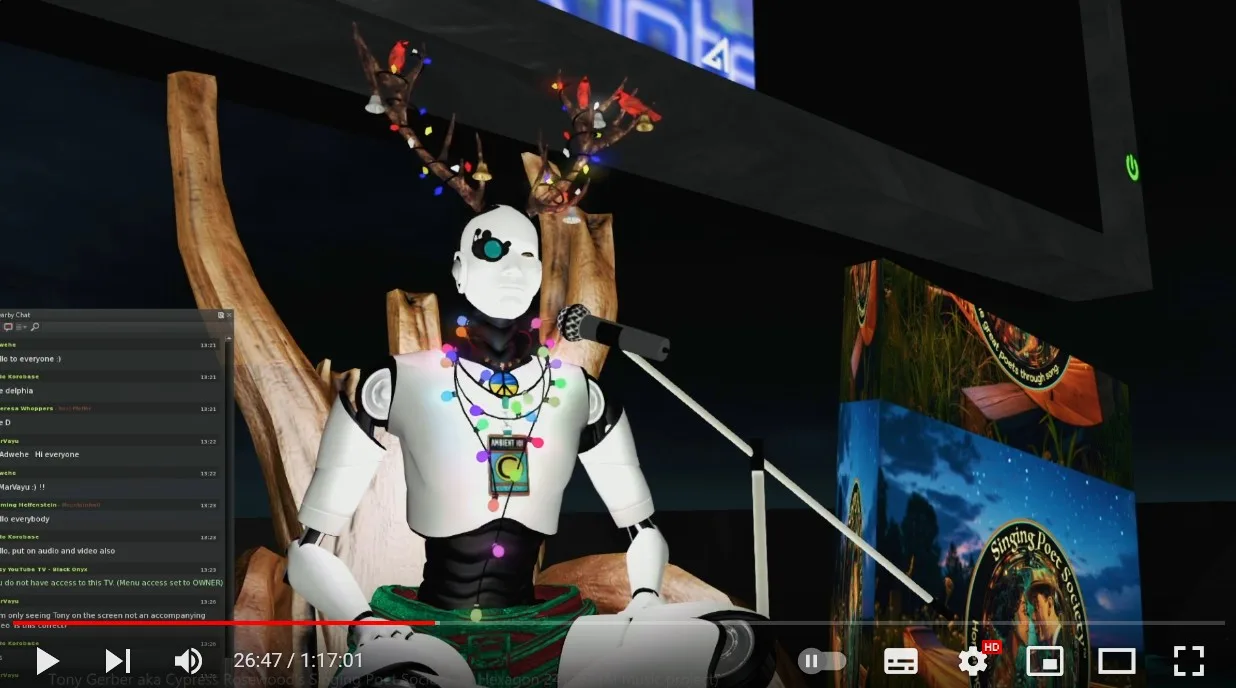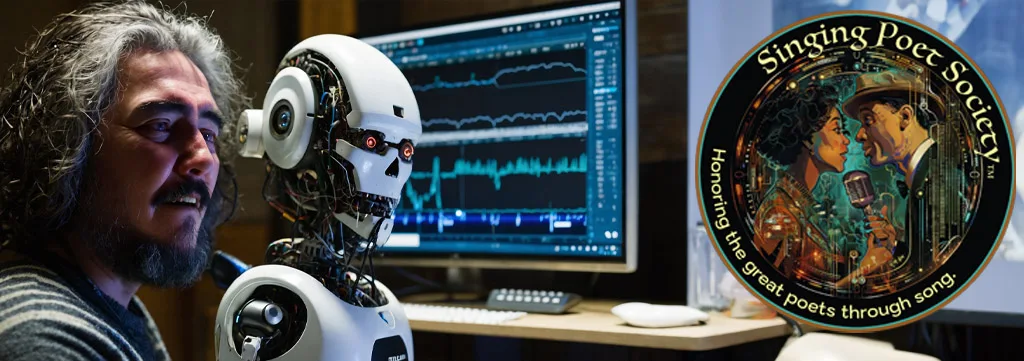One of the most controversial things about generative AI in the artistic field is undoubtedly the fact that the gigantic databases on which the generation is based are built with data available on the web, without asking for any authorization from the authors. Some sites have specialized in audio generation, but they do not care about the origin of the generated content and instead focus on the creation of web interfaces designed to facilitate the creation of “songs” that sound “believable”.
This also applies to graphics or wherever AI works generatively, so much so that the prompts can be tacked on with the wording “in the style of [famous name here]”, sometimes resulting in somewhat “artistic” results. But who is the artist in this case? Who wrote the prompt or who actually created the snippet that the AI based the piece on?
In my opinion there is no real creative act in this, it is more a question of luck than anything else.
The Singing Poet Society project case instead adds an element that changes the cards on the table. Tony has trained the AI (a process called machine learning) using his own material, aspects that in my opinion constitute the heart of the matter. The AI is used here simply as a tool for the construction of a song, it is not ultimately that different from using sequencers or other generative tools in a DAW.
However, knowing that the one singing is the AI with Tony’s voice is a bit shocking, but that’s what actually happens.
I haven’t come to a personal opinion yet and I don’t know what I think, but removing the use of materials made by others from the scene certainly cleans up the perspective.
Anyway, here is the recording of the evening, so everyone can develop their own conviction.
Tony Gerber aka Cypress Rosewood’s Singing Poet Society @ Hexagon 241207 (AI music project).
Video by D-oo-b.



